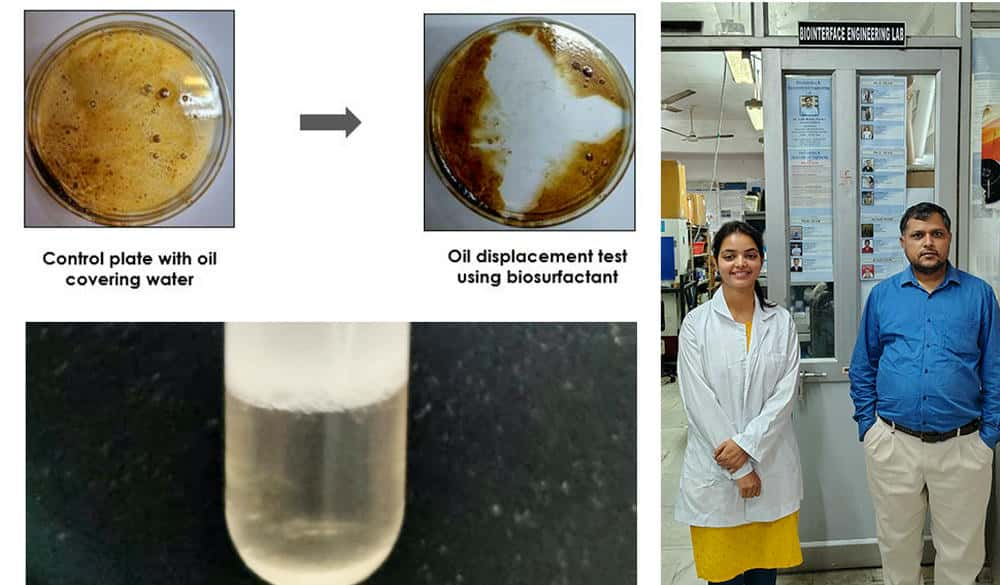IIT Guwahati unlocks industrial potential of traditional Assamese fermented food

Researchers from the Indian Institute of Technology (IIT) Guwahati have analyzed Panitenga, a traditional Assamese fermented food, to identify beneficial bacterial strains with significant industrial and environmental applications.
Panitenga, a staple in Assamese cuisine, is made by fermenting mustard seeds with acidic extracts from mangosteen, tamarind, or lime juice. The mixture is kneaded into a dough, wrapped in banana leaves, and left to ferment in bamboo containers for one to two weeks. This process enhances flavour and texture while fostering the growth of beneficial bacteria. While fermented foods are known for their probiotic benefits, certain bacteria within them also produce valuable bioactive compounds with industrial potential.
A research team led by Prof. Lalit Mohan Pandey, Associate Professor, Department of Biosciences and Bioengineering, IIT Guwahati, identified Bacillus subtilis SMP-2 as a key bacterial strain in Panitenga. This strain produces biosurfactants—natural compounds with a wide range of industrial and environmental applications.
Surfactants aid in mixing substances that do not naturally combine, such as oil and water. Unlike synthetic surfactants used in detergents, which can be harmful to the environment, biosurfactants are biodegradable, eco-friendly, and effective under extreme conditions. Their applications include microbial-enhanced Oil Recovery (MEOR): Improving oil extraction efficiency from underground reservoirs, Bioremediation: Cleaning up oil spills in oceans and soil,
Cosmetics & Pharmaceuticals: Replacing synthetic additives in skincare and drug formulations and Optimizing Biosurfactant Production.
Under these conditions, the bacteria produced 8.13 grams per litre of a lipopeptide biosurfactant. This compound effectively reduced water surface tension, demonstrating its ability to break down oil and grease. Additionally, it remained stable across varying pH levels, temperatures, and salt concentrations. Notably, it exhibited 83% crude oil degradation efficiency at 10 g/L concentration, making it highly effective for environmental cleanup.
This research bridges traditional food knowledge with modern biotechnology. By harnessing microbes from Panitenga, scientists are not only advancing probiotic research but also developing sustainable industrial solutions. The study, published in Food and Bioproducts Processing, was coauthored by Prof. Lalit M. Pandey and research scholar Ms. Smrity Sonbhadra.
The team is further working to integrate this process with a hydrophobic biosorbent system to enhance oil adsorption rates before initiating bioremediation. This innovative approach aims to improve oil spill waste management in marine environments, offering a sustainable alternative to conventional cleanup methods.
Prof. Pandey emphasized that his research group has spent over a decade studying biosurfactants derived from bacterial strains found in oil refineries, contaminated soils, and seawater. These bio-based surface-active molecules have demonstrated immense potential for environmental cleanup and biomedical applications.
The study underscores the untapped potential of indigenous fermented foods in developing eco-friendly, industrially viable solutions, reinforcing the significance of traditional knowledge in modern scientific advancements.

Leave a Reply